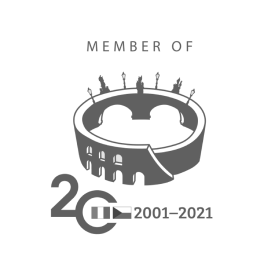
M&A market: a look at the Czech Republic
The M&A market in the Czech Republic continues to grow, supported by foreign investment and a favorable monetary policy.
Mergers and Acquisitions (M&A) are extraordinary finance transactions aimed at pursuing size development of companies. They take the form of an external growth strategy.
In brief, a merger occurs when two companies join together to form a new entity, while an acquisition is the process by which one company acquires control of another, through the purchase of majority ownership or stock.
The reasons for undertaking an M&A transaction are diverse, but the main ones can be traced back to exploiting operational and financial synergies: for example, through the acquisition of a customer, supplier or competitor, it is possible to be able to optimize operational efficiency by exploiting economies of scale and scope. With regard to financial synergies, it is possible to reduce the cost of capital, so that shareholders and lenders can be induced to buy shares in a company or extend credit to it.
Another motivation can be found in an attempt to implement diversification, with the aim of seeking better conditions for growth by offering new products in markets that are already manned, or existing products in new markets. Strategic realignment is another reason for such operations, which can be useful for companies to adapt to the changing environment in which they operate.
In the third quarter of this year, activity in the European mergers and acquisitions (M&A) market continued to increase due to lower inflation, lower interest rates on the euro, and the continued positive performance of equity markets.
Based on data published by Capital IQ, in the third quarter of 2024, the number of transactions increased from 2,841 (recorded in the second quarter of the year) to 3,040, an increase of 7 percent. In addition, the total value of transactions, calculated as the sum of the value of transactions over the past twelve months (LTM), rose from $576 billion to $638 billion. This increase reflects a continued improvement in the economic environment and market sentiment. Deloitte’s M&A Index had projected an increase to 3,025 transactions for the third quarter of 2024.
Deloitte’s M&A Index is a forward-looking indicator that estimates the future number of mergers and acquisitions in the market, based on the number of transactions announced for a given period and identifying the main factors influencing market conditions in Europe (27 EU countries + UK). The index uses data from various global sources such as Capital IQ, Mergermarket, Pitchbook, Eurostat and others, combining statistical and algorithmic tools to provide a comprehensive view of M&A activity.
Many large transactions completed this year signal growing confidence among companies and investors. Despite some uncertainty related to ongoing geopolitical conflicts, renewed optimism, expectations of further interest rate reductions, and improving market valuations are positive signs for companies and investors seeking M&A opportunities in the coming months.
– Private Equity: Lower interest rates favor private equity firms, whose debt-based model has been hurt by the post-pandemic rate hike. As of July 2024, private equity firms’ unallocated funds (dry powder) totaled about $2.62 trillion, a record amount of capital that could be used for strategic acquisitions.
– Digitization and ESG transitions: Accelerating digitization (supported by artificial intelligence), ESG initiatives, and decarbonization will continue to drive transactions.
– PE activity: According to Bain & Company, unsold assets of private equity firms have reached a record $3.2 trillion. PE transaction activity is growing, indicating a positive trend for the future.
The M&A market in the Czech Republic continues to grow due to a favorable environment for foreign investment and an open market. Transactions follow international standards, and the easing of monetary policy has encouraged a 17 percent increase in transactions. Lower interest rates are expected to further stimulate dealmaking and private equity activity, creating a positive outlook for the sector.
However, it must be said that before the Czech National Bank began to reduce interest rates in 2023, they were particularly high and held back investment activity. In addition, weak foreign demand, particularly from Germany, is holding back the economy, which remains weak. In the second quarter, GDP grew 0.3 percent from the previous quarter and 0.6 percent year-on-year, driven mainly by domestic demand and fixed investment. The industrial sector suffered, while services became the main growth engine.
Significant transactions in the third quarter of 2024
– Nordic Telecom Holding, a provider of internet connections, was 100% acquired by O2 Czech Republic.
– Energy-mechanical company Tedom, owned by Jet Investment, was sold to Japan’s Yanmar Group.
– Genesis Growth Equity Fund I acquired a majority stake in Predvyber.cz, a company specializing in HR consulting.
– Rockaway Capital purchased book wholesaler Pemic Books.
– Czech company AMiT bought Top Power, a manufacturer of transportation electronics.
Fonti: https://www.expats.cz/czech-news/article/czech-railways-launches-express-train-from-prague-to-the-baltic-sea; https://www.ceskedrahy.cz/Baltic-express?language=cs; https://www.idnes.cz/ekonomika/doprava/baltic-express-praha-gdyne-ceske-dragy-zpozdeni.A241215_113230_ekonomika_bro ; https://www.zeleznicni-magazin.cz/aktuality/polska-lokomotiva-pro-baltic-express ; https://www.ceskedrahy.cz/en/press-center/press-releases/baltic-express-will-start-running-already-four-months-new-2025.




